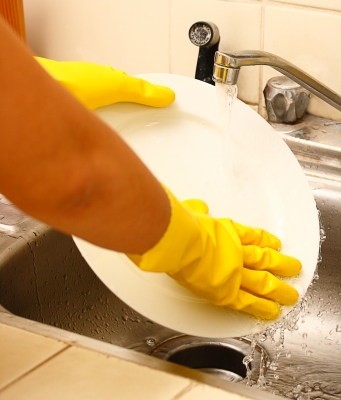
Water is our planet's most precious resource, and it's an absolutely vital part of survival, not only for our species but for almost every living thing on Earth. That's why the conservation of water is an extremely important part of being environmentally conscious and it's why we need to do all we can to make sure that we are mindful of our water consumption and our daily water usage habits, especially during the hot summer months.
In the summer, we tend to use more water than any other time of the year, simply because the temperatures are high and there's nothing that can cool us down quite like cold water. Whether we're filling up our pools with it, turning on the sprinklers in the backyard to water the grass and the garden (or let the children run around in) or whether we're filling up our glasses with it on a hot summer day, water is everywhere around us.
Taking steps to reduce your water consumption is an important part of living a greener lifestyle, and with a few simple tips it's possible for you to practice water conservation during your everyday life without much hassle at all. In fact, some of these methods of reducing water consumption may even end up making your life a little bit easier in the long run.
Tips for conserving water
Here are some of the most effective everyday ways for conserving water without sacrificing your day-to-day activities and without compromising your lifestyle:
- Cut back on your leisurely baths and showers, or just cut out baths altogether. The average bath uses anywhere from 30 to 50 gallons of water to fill up the tub, depending on how large your bathtub is. By comparison, a long shower using an old shower head will use about 20 gallons of water, at the most. Unless you have young children that you need to bathe, baths are not necessary and you can save a lot of water by simply choosing to shower over taking a bath.
- Use the dishwasher to wash your dishes instead of doing it by hand. This one sounds surprising, but it's true. Washing your dishes in the sink by hand wastes much more water than simply placing them in your dishwasher and letting the machine do the work. Think about it: when you wash dishes in the sink, you take your time to thoroughly scrub each dish and pot with a sponge, and all the while you're doing that, what's going on? The faucet continues to run! This wastes more water than you think, and you can conserve water by putting them in the dishwasher instead.
- Repair all leaky faucets and toilet tanks. Leaky faucets and toilet tanks are huge culprits for unnecessarily wasting water. If you have a leaky sink, make sure to get it fixed. While you may not think that those tiny drops of water in the sink are making a big difference in your water consumption, a leaky faucet that drips all day and all night wastes a significant amount of water. Along those same lines, leaky toilet tanks will cause water to flow constantly and will waste a large amount of water.
- Install low-flow shower heads and eco-friendly toilets. Of course this step requires a little more effort on your part, as you have to purchase a new shower head or a new toilet, but if you're serious about water conservation, these two things will be sure to cut down your water consumption dramatically. If you're not quite ready to spring for a new toilet, a low-flow shower head can be found at just about any home improvement or home goods store and can be installed in your shower quite easily.
- Do your laundry only when you have a full load. A good way to conserve water when doing your laundry is to avoid doing partial loads. You'll use less water if you run your washing machine as little as possible, which means saving laundry day for when you have a full load to wash. If you must do a partial load, make sure to adjust the settings on your washing machine to the correct water level so that you don't unnecessarily use more water than you need to.
- Water your lawn in the morning and at night. When you water your lawn during the day, the sun and the higher temperatures tend to evaporate the water a lot quicker, preventing it from being absorbed into the soil, thus requiring you to water it more often to keep it from drying out and dying. However, if you water your lawn during the morning and evenings when the temperatures are much cooler, you'll use less water.
- Only flush the toilet when it's necessary. Although you may think it's a good idea to throw waste into the toilet like dirty facial tissues, discarded wipes or other cleaning supplies, you should use the toilet only to flush sanitary waste. Using your toilet as a trash can and flushing garbage can not only clog your pipes and cause a nasty problem, but it also wastes a lot of water.
- Avoid using a garden hose to hose down driveway or sidewalks. If you need to clean the sidewalk in front of your house or your driveway, use a broom or brush to sweep the debris away. Using a hose to clear your sidewalk or driveway can waste up to 50 gallons of water in just five minutes of cleaning. By using a broom or brush to sweep the leaves or dirt, you will save a lot of water.
Photo by: Stuart Miles (Freedigitalphotos.net)